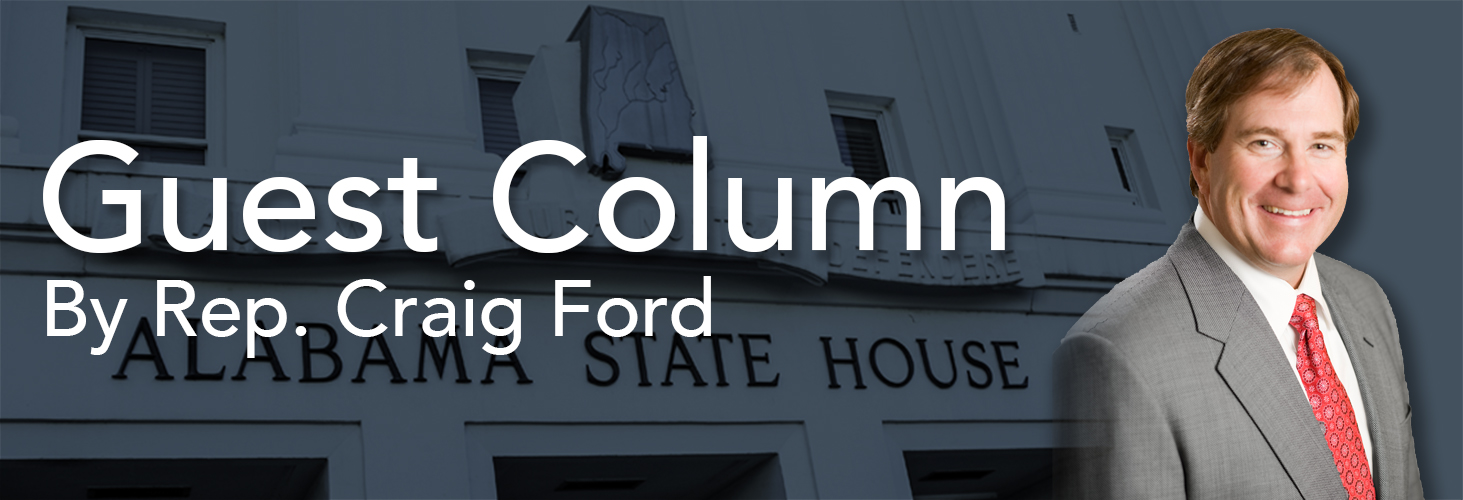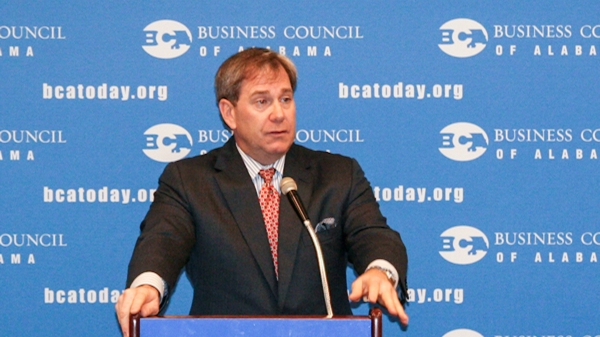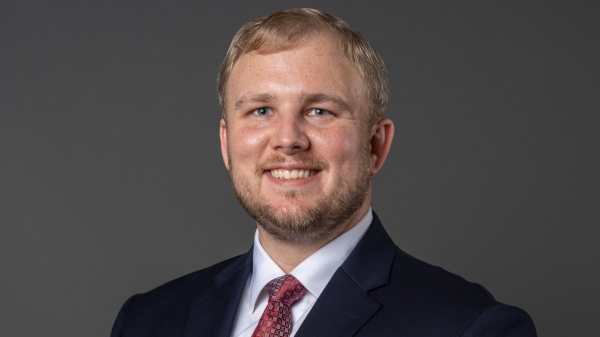By Minority Leader Rep. Craig Ford
It isn’t often these days that you see Democrats and Republicans agreeing on major policies. But that’s exactly what began to happen last week.
It is no secret that our General Fund budget is in desperate shape. The proposed budget cuts that were released the other week would gut our government to the point that it could shut down, which would have devastating affects on families throughout the state.
But that outcome can be avoided if Democrats and Republicans are able to work together to help fix the very real budget problem. That is why it is so encouraging that the Chair of the Ways and Means—General Fund Committee, Rep. Steve Clouse, R-Ozark, has co-sponsored the lottery bill that would help put funds back into Medicaid.
I’ve said for a long time that the budget problem is very serious; in fact, it’s a crisis! It will take Democrats and Republicans working together to fix this crisis, and what happened last week shows that we’ve started making progress.
There are many legislators on both sides of the aisle who see the value in letting the people of Alabama vote on a lottery. They may not be willing to sponsor the legislation and put their name on it, but they see that a change must be made and are willing to let the people vote on the issue. They see that closing ten hospitals in rural communities over the last three years because Medicaid doesn’t have the funding to keep their doors open isn’t a way to serve the people.
The closing of these hospitals has two implications on Alabamians, CEO of Coosa Valley Medical Center Glenn Sisk has said. He told AL.com last year that these closings are a public health issue, in addition to a financial one. More and more people use the ER as a primary care doctor, and when you close the hospital…well, there goes the ER. There goes some people’s primary care doctor. Sadly, that’s just the tip of the iceberg.
Medicaid is a crucial part of our state’s healthcare system. The holes in the General Fund budget aren’t just closing ten rural hospitals, but also closing the doors of OB/GYN clinics. Currently less than half of our counties—32 out of 67, have such clinics, leaving thousands of mothers across the state with no local way of receiving prenatal or deliver care.
Without a sound health-care infrastructure we cannot recruit industry to our state. We need to change the current tide, and we have an option to fill that hole in the General Fund budget by bringing a statewide lottery to a vote.
Medicaid and prisons are, by far, the two biggest expenditures in the budget and something has to be done to protect their funding. A statewide lottery has the potential to generate up to $280 million each year for Medicaid alone. That would free up a large portion of the General Fund for other programs, such as law enforcement benefits or meals on wheels for the elderly, which currently stands to lose half its budget if we pass the version of the General Fund that was released to the public the other week.
A statewide lottery is a way to fill in the gaps without losing important programs, and it does so in a voluntary way.
And if we don’t use the lottery for the General Fund, we could still pass a lottery that puts the money in a scholarship fund like they do in Georgia.
Georgia dedicates its lottery funding to its HOPE scholarship, which gives qualified students assistance to attend eligible in-state colleges, universities and technical schools. Since its creation, the Georgia lottery has raised $8 billion in scholarship funds and more than 1.6 million scholarships provided, according to the Georgia lottery’s website. $8 billion in scholarship funds without costing unwilling tax payers a dime.
The reality is our state budget is in a whole so big we simply cannot cut our way out of it. The only solution is more revenue. Before we raise taxes on working families, let’s look at voluntary revenue streams like the lottery, a tobacco tax increase and a compact with the Poarch Creek Indians.
If Democrats and Republicans continue to come together, we can fix this problem and avoid a government shutdown without massive tax increases. But if we don’t pass a lottery now, then it will be tax increases this year and we will be right back here in the same position next year.
Rep. Craig Ford is a Democrat from Gadsden and the Minority Leader in the Alabama House of Representatives.


















































